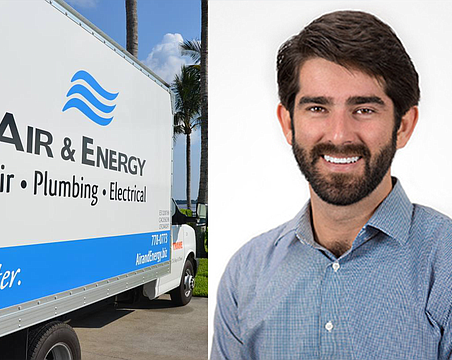Nothing to Hoot About
By Francis X. Gilpin
Associate Editor
Lynn D. "L.D." Stewart fell out with his old pals who together started Hooters. Then Stewart thought a national franchiser of the restaurant concept short-counted his share of the profits from an expansion of the beer-chicken wings-and-cleavage chain.
But Stewart is facing his biggest adversary yet: the Internal Revenue Service.
The 61-year-old Oldsmar resident is set to go on trial in Tampa in October on felony charges of tax evasion and perjury. He has pleaded not guilty.
The multimillionaire is accused of using trusts and offshore banks to unlawfully lower his family's taxable income during two years in the late 1990s.
In 1997, Stewart turned roughly $4.7 million in taxable income into a comparatively modest $428,780. The income reduction allowed Stewart and his wife Juanita to save $1.5 million in federal tax that year. In 1998, they did even better. Apparently guided by their accountant, L.D. and Juanita Stewart saved another $2.1 million.
Stewart's lawyer, John M. Fitzgibbons of
Tampa, plans a vigorous defense. "As a result of an incredible work ethic and the success of Hooters," says Fitzgibbons, "Mr. Stewart became a successful and wealthy businessman. Like many other Americans who earned their wealth, Mr. Stewart sought estate and tax planning advice from lawyers and accountants who established a number of trusts, which are the focal point of this litigation."
The IRS has since found many of these arrangements to be abusive tax shelters. "Mr. Stewart and many others are actually victims, in the sense that they relied on these lawyers and accountants," says Fitzgibbons.
Jailing a co-founder of Hooters would be a feather in the cap of IRS agents and federal prosecutors. They have been tracking down and prosecuting promoters and beneficiaries of an illegal tax avoidance scheme devised more than a decade ago by a group of accountants, attorneys and pitchmen from the Midwest.
A company called Aegis Financial Group, based in suburban Chicago, conducted seminars in seven states, including Florida, mostly for the wealthy and the self-employed who were looking to cut their tax bills.
Undercover federal investigators were also in attendance, according to an affidavit by IRS agent Andrew Smyros filed in Tampa federal court.
The agents heard Aegis promoters tell seminar attendees to put businesses, homes and other assets into a series of trusts, some based in the tax haven of Belize. Participants were typically charged $38,000 to use the trusts. Clients were told they could then deduct, as trust expenses, such items as motor vehicle purchases and their children's college tuition.
In 1998, the Aegis promoters invited potential clients to Belize for a trust seminar. Undercover IRS agents came along. An unidentified couple from Florida endorsed the Aegis trust system. They told one undercover IRS agent that they had been "screwing" the IRS for years, according to the Smyros affidavit, but the Aegis scheme "is a better way of doing it."
Aegis held another seminar in 1999 in Beverly Hills, Calif. One of the chief promoters, Michael Vallone, was asked why Aegis didn't seek an opinion from the IRS on the legality of the trust system.
"They've [the IRS] already demonstrated to us over and over and over again that they're willing to act illegally when it comes to attacking these things," undercover IRS agents in attendance quoted Vallone replying to the question. "So consequently we have to fight fire with fire."
But that same year, Lynn Bell-Hampp, a certified public accountant from Houston who prepared tax returns for Aegis clients, made a confession to an undercover IRS agent.
"I'm not going to sit here and blow smoke up anybody's ass. This is risky stuff," Bell-Hampp is quoted as saying. "I have had difficulty personally going out and marketing it...because I don't think people understand the risk, you know. And in order to sell it, you can't really talk about that risk."
IRS agent Smyros submitted his affidavit for court permission to search the Clearwater office of CPA Michael J. Maricle in 2000. Maricle, who himself used the Aegis trust system, was Stewart's accountant. The federal agents carted away numerous files related to Stewart and his businesses, according to court records.
Two years ago, Maricle struck a plea bargain with federal prosecutors, admitting to two counts of aiding and preparing a false tax return. Maricle, 60, of Palm Harbor, also agreed to testify against former clients, in exchange for a lighter sentence.
Maricle sold an Aegis trust system package to a client who resembles Stewart for $180,000 in 1995, according to the CPA's plea agreement.
Although the plea agreement refers to that client only as "Tax Payer Number One," the document states that in 1995 the mystery taxpayer sold his interests in various corporations for $10 million and signed an administrative services agreement worth $20 million with a major corporation.
Other court records show Stewart signed an administrative services agreement in 1995 with Hooters of America Inc., the national franchiser of the restaurant chain that he helped start in Clearwater.
Stewart has since sued Hooters of America, claiming the Georgia-based franchiser violated his contract by miscalculating gross sales across the chain and thereby decreasing his cut of the profits.
Four of the six Hooters founders remain owners of a few chain assets. Stewart, who rounded up the original sextet that opened the first Hooters, isn't among them.
Stewart and the other founders, including local advertising agency owner Ed Droste, parted ways in 1995. Droste told the Gulf Coast Business Review two years ago that the split occurred when Stewart teamed with Hooters of America on a hostile takeover of the whole Hooters empire.
Maricle confesses in his plea agreement that he fraudulently assigned installment payments from the corporate sale of what was presumably Stewart's interest in Hooters to an asset management trust, in order to help trim his client's taxes. The payments should have been considered taxable income of the client who appears to be Stewart, according to the plea document.
By misapplying the installment payments, Maricle acknowledges that the client's 1998 taxable income was lowered on Form 1040 to below $500,000, when the true figure was above $7 million.
A second Maricle client, referred to as "Tax Payer Number Two" in the plea agreement, looks to be local software company owner William L. Tiner. The agreement states that client paid $100,000 for his Aegis package in 1996. Using the Aegis scheme, the client's company improperly deducted as management consulting fees more than $2 million in executive compensation. "No taxes were ever paid on the vast majority of these funds," according to the plea agreement.
Tiner, 61, of Safety Harbor, is serving a five-year prison sentence in Pensacola handed down last year after he was found him guilty of seven counts of tax evasion and filing false corporate income tax returns. Tiner is appealing his sentence, which includes restitution to the government of nearly $1 million.
Attorneys for Tiner claim the IRS let Maricle, after being implicated in the illegal tax-evasion network, continue to prepare the federal returns of a dozen or more clients in the Tampa area using the Aegis system.
The 2000 raid on Maricle's Clearwater office was "subterfuge" so the CPA could maintain his business contact with these clients while entrapping them into illegal conduct as an IRS informant, the attorneys say.
Assistant U.S. Attorney Jay L. Hoffer responded in court that Maricle didn't start telling the IRS his story until more than two years after the raid. Maricle testified for the government at Tiner's trial.
In an affidavit of his own filed with the court, Tiner says he was introduced to the Aegis system in 1996 by Maricle and H. Lee McCauley, an investment adviser then affiliated with Raymond James Financial Services Inc. Tiner states that Maricle and McCauley provided him with a copy of a 1996 letter from an IRS official that the two promoters suggested was a legal endorsement of the tax-avoidance system.
Maricle was sentenced to two-and-a-half years behind bars in February 2004. But he has yet to report to prison. Federal prosecutors have consented to Maricle remaining free until November while he helps them prosecute Stewart and others.
McCauley was ensnared in the IRS dragnet, too.
In January, the 64-year-old Dunedin resident pleaded guilty to one count of filing a false tax return. McCauley admitted to reporting that he and his wife earned just $44,539 in 1997, when their actual taxable income was more than $1 million. That shrunk the couple's 1997 income tax bill by more than $440,000. The McCauleys illegally avoided paying another $345,766 in income tax for 1998, according to the plea deal with the government.
McCauley is free while he awaits sentencing this fall. Both he and Maricle could be government witnesses in the upcoming trials of Stewart in Tampa and some Aegis operatives in the Midwest.





